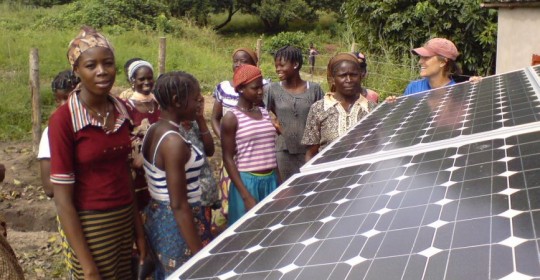There are no products in your shopping cart.
| 0 Items | £0.00 |


VICE president Professor Yemi Osinbajo has announced ambitious plans to ensure that about 30% of Nigeria's electricity supply is generated from clean energy and renewable sources by 2030 as part of the nation's contribution to cutting greenhouse gases.
Nigeria is a signatory to the 2015 Paris Agreement on Climate Change which committed the nation to limiting global warming and achieving a climate neutral world by mid-century. Signed by 196 countries, the agreements commits them to generating more power from clean energy sources such as solar, wind and biofuels.
Despite pledging to help cut greenhouse gases, Nigeria has done very little practically, as she has not moved towards the mass-use of clean energy, has no electric car programme and is still heavily dependent on fossil fuels. However, Nigeria faces a sever power generation problem and Professor Osinbajo said that this will be met by reverting to renewables, mainly solar power.
Speaking at the inauguration of a 1.12MW solar hybrid project at the Abubakar Tafawa Balewa University, Bauchi, Professor Osinbajo said that the ongoing projects being executed by the Rural Electrification Agency were critical to the achievement of that objective and a reduction of Nigeria’s carbon footprint. He noted that at least 22,000 students in the country and several faculties in several universities were already hooked on to the programme.
According to the vice president, Nigeria was working hard to curb emissions by 20% immediately and 45% in collaboration with its international partners. He stated that the programme would expand the country’s commitment to global best practice and to cleaner energy in line with the Paris Agreement on Climate Change.
Professor Osinbajo said: “This is yet another milestone in the Energizing Education Programme. The objective of the programme is that all 37 federal universities and seven teaching hospitals will be provided with captive energy solution to ensure sustainable and reliable power for students and faculties."
At the event, he called for more effective engagements in the international community to develop a better understanding on the challenges involved in the attainment of net zero emissions as envisaged under the Paris Agreement regarding climate change expectations and commitments. Nigeria will be attending the 26th UN Climate Change Conference taking place in November in Glasgow, Scotland, where fresh commitments will be made towards achieving these goals.
While restating Nigeria’s support and commitment to the Paris Agreement, Professor Osinbajo explained that the concern is what happens to oil and gas emissions in countries like Nigeria in the transition period leading to the net zero emissions target. He stressed that the country is already moving towards the conversion of vehicles to cleaner gas known as compressed natural gas and also converting to liquified petroleum gas for cooking.